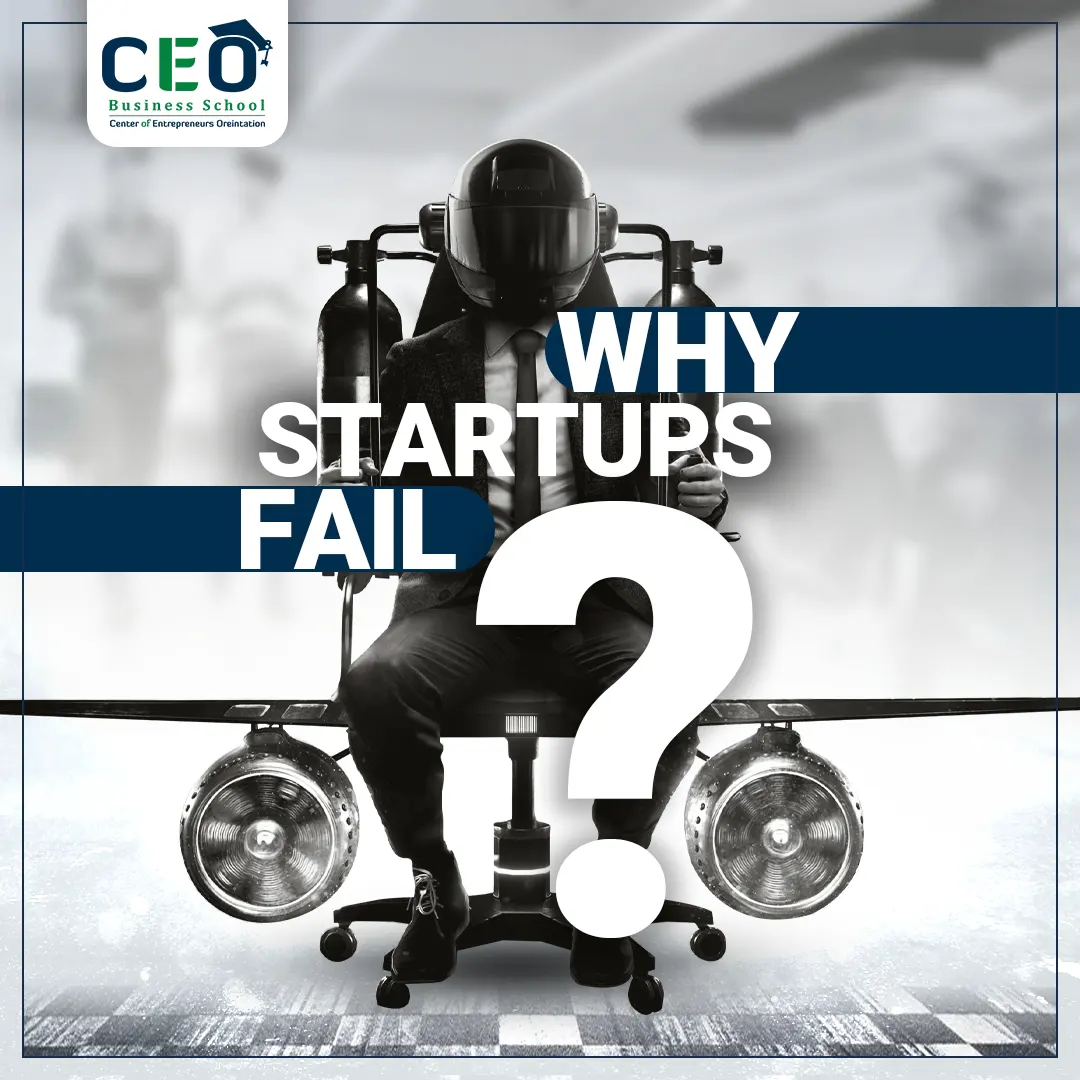
Why do startups fail?
1. No need on the market In 42% of cases, the company’s proposal does not meet any market need.
This high failure rate proves that these startups have poorly studied their market. So start by doing good market research before you start.
If there is no market for your product or service, you will not be around
for a long time. There is no way around this problem.
2. The lack of cash
1 out of 3 businesses goes out of business because of cash management problems!
To sustain your business model, you have to know how to manage your budget.
3. The wrong team, The composition of your team is a crucial element.
In 23% of the cases, the entrepreneurs explain that their failure is due to errors in the recruitment of the managers.
Choosing collaborators is a challenge for any entrepreneur.
Attracting good candidates is not a simple task!
4. A too competitive market.
As we explained above, a market study is essential before undertaking.
Being competitive is an obligation, not only to be viable but also to be able to develop, and this concerns all sectors of activity.
5. Unsuitable costs and prices 2/3 of failed start-ups did not control the costs and prices of their product.
6. Product quality is too neglected.
The quality of a product is its propensity to satisfy (or not) the expectations of your customers.
The quality of your goods or services is closely tied to the perception that customers have of your business and your level of profitability.
And consumers are often demanding quality levels. They demand the best product possible with the best quality/price ratio.
7. Absence of Business Model.
Your Business Model, or Economic Model, is the way your business creates value.
Your Business Model explains how the company will go about creating value and generating profits.
This part is a presentation of the global logic of the company and its positioning in the market.
Does it explain your processes of realization of your offer, and especially in
what is the ideal solution to answer the request which you identified?
8. A weak marketing strategy, see nonexistent.
Some entrepreneurs are mistaken in thinking that a good product will be known on its own. In the absence of a solid marketing strategy, they risk exposing their products to the wrong public or via unsuitable channels.
Developing a marketing strategy allows you to project yourself into the
future, to consider the different possible options and to identify potential
blocking points …
9. Customer requests ignored.
The customer must be at the heart of the business concern. 14% of companies failed to take into account the demands of their customers.
The key to the success of your startup lies in the satisfaction of your customers.
Satisfied customers will probably become loyal customers, which is good for you.
10. A timing problem.
A product launched at the wrong time can be a disaster for your business, so it is important to analyze:
•seasonality of demand.
•the expectations of consumers.
•the attitude of competitors.
Even if you can not predict everything, a good knowledge of your market avoids the main pitfalls, such as off-season launches.
11. The loss of focus.
Entrepreneurs are sometimes overwhelmed by their implementation, and this prevents them from focusing on the main TEMP goal behind their product or service.
There is a risk of losing sight of your goals and being too involved in the operations.
12. A bad agreement between partners or investors.
Ignoring investors’ demands or giving them more than they need can hurt a business.
The same goes for tensions between co-founders and associates of your project.
Do your best to avoid conflict and try to maintain good relations with everyone.
And most importantly, carefully choose the people you surround yourself with.
13. A mismanaged business change.
Your startup may be led to a strategic reorientation in response to:
•variations in customer requests.
•the appearance of new technology.
•a new legislative constraint.
•an increase in competition.
This step is delicate in the life of companies. Conducted with haste, it can be fatal.
The change management must be conducted step by step, with objectives and a clear action plan.
14. Do not be passionate about your activity.
Being an entrepreneur is a good choice, so it’s important to choose an activity that motivates you and about which you are ready to invest 200%.
The lack or disappearance of passion for the core business is one of the main causes of failure.
If you are not motivated from the beginning, you can not be motivated in the long run.
Hence the importance of being passionate about what you create. It is this passion that gives us wings and animates us.
A person who is passionate about her job does not count the hours she devotes to her project.
Moreover, the motivation is maintained daily! Surround ourselves with people we love, create a work environment that we like, work by its values, delegate what we do not like to do …
Often, what distinguishes a successful business from one that is not successful is not better products or services. It’s not even a smarter marketing strategy or a bigger budget.
It is rather the resilience and the will of the entrepreneur.

